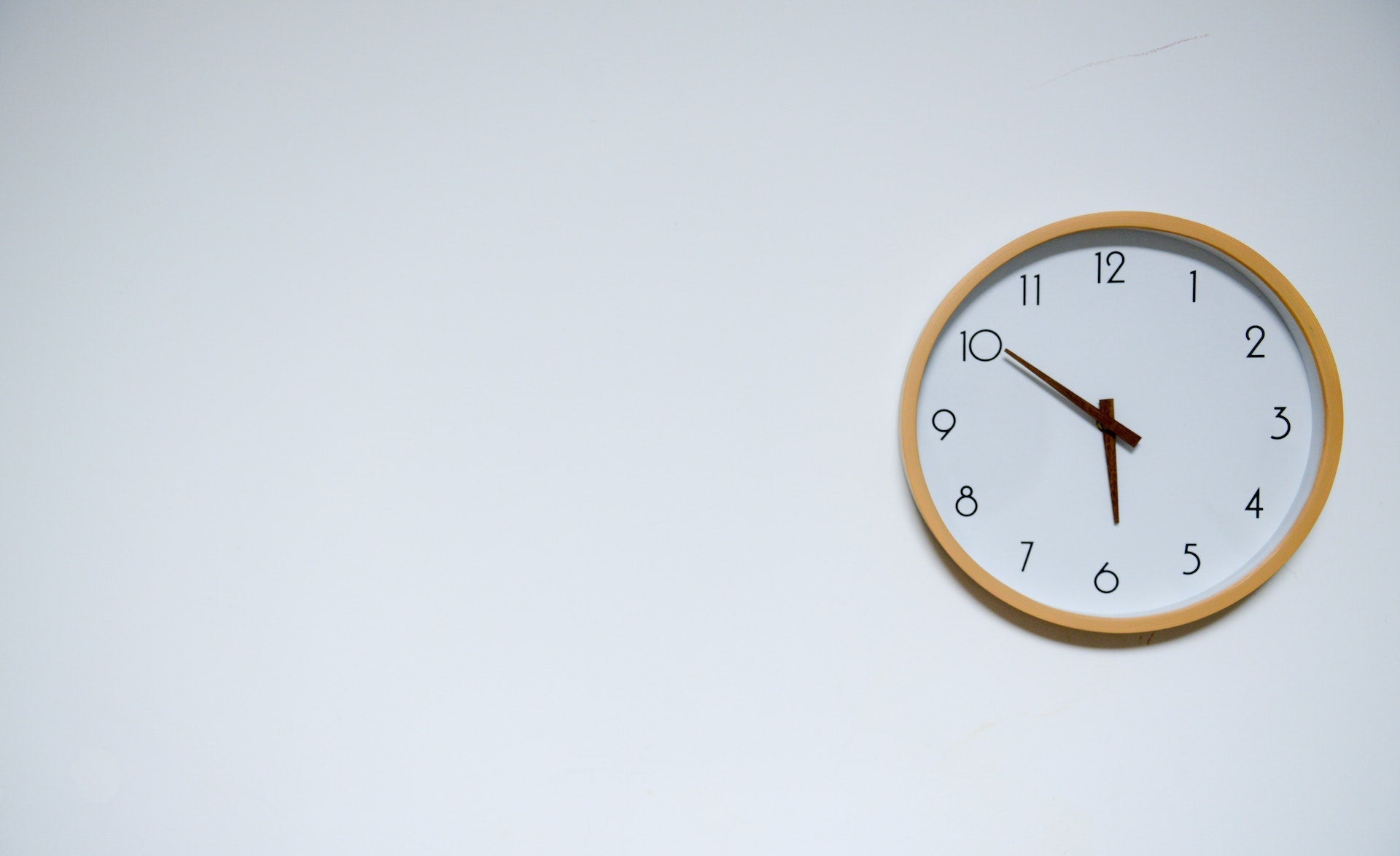In today's fast-paced event marketing landscape, finding a healthy work-life balance has become more crucial than ever. With the constant demands of lead generation, networking, and event planning, marketing professionals often find themselves working extended hours and struggling to disconnect.
Recent studies show that about 10% of full-time employees work more than 50 hours per week, with the US ranking 29th out of 41 countries on the work-life balance index.
We spent the last couple of months talking to personal growth experts, and here is a guide that offers practical strategies from them to help you achieve harmony between your professional responsibilities and personal well-being.

Setting Boundaries in a Digital-First World
The line between work and personal life has become increasingly blurred, especially for event marketing professionals who often work irregular hours during conferences and trade shows. Establishing clear boundaries is essential for maintaining your well-being and preventing burnout.
- Create physical separation: When working from home or on the road, designate specific spaces for work activities. This physical separation helps your brain associate certain areas with productivity and others with relaxation. After event hours, resist the urge to check emails or continue networking in spaces meant for personal time.
- Establish digital boundaries: Implement technology cutoff times where you disconnect from work-related communications. Consider using separate devices or profiles for work and personal use, allowing you to fully step away from professional obligations during personal time.
- Communicate your availability: Be transparent with colleagues and clients about your working hours and response times. Setting realistic expectations helps prevent the assumption that you're available 24/7, even during major events or campaigns.
Time Management Strategies for Event Professionals
Effective time management is the foundation of work-life balance, especially in the event marketing industry, where deadlines and schedules can be unpredictable.
- Plan ahead with intention: Don't leave your personal time to chance. Just as you schedule meetings and event deadlines, deliberately plan for activities that bring you joy and relaxation. Research from April 2025 shows that proactively weaving restorative activities into your week makes you less likely to feel that your life revolves entirely around work.
- Embrace your natural productivity patterns: Understanding how your brain works best can help you accomplish more during your peak hours. Try time management techniques like the Pomodoro Method (25-minute focused work blocks followed by short breaks) to maximize productivity during your workday. This approach helps prevent the need to work evenings or weekends to catch up.
- Batch similar tasks: Group similar activities together to reduce context switching and improve efficiency. For example, schedule all your client calls in one block, or dedicate specific times for email responses and lead follow-ups.
Prioritization: The Key to Balance
In the event marketing world, everything can seem urgent. Learning to prioritize effectively is crucial for maintaining balance.
Implement the Eisenhower Matrix
Categorize tasks based on their importance and urgency:
- Important and urgent: Do these tasks immediately
- Important but not urgent: Schedule these tasks
- Urgent but not important: Delegate these tasks when possible
- Neither urgent nor important: Eliminate these tasks
Focus on high-impact activities
Identify the 20% of your work that delivers 80% of your results. For event marketers, this might be nurturing high-value leads rather than trying to follow up with everyone who visited your booth.
Learn to say no
Being selective about which events, meetings, and projects you take on is essential for maintaining balance. Evaluate new opportunities against your current workload and personal commitments before agreeing to additional responsibilities.
Flexibility and Adaptability
The event marketing calendar can be unpredictable, with busy seasons and quieter periods. Embracing flexibility helps you maintain balance throughout these fluctuations.
Adjust your schedule seasonally
During heavy event seasons, you might need to work more intensively. Balance this by scheduling lighter workloads and additional personal time during quieter periods. This approach acknowledges the cyclical nature of event marketing while ensuring you maintain balance over time.
Negotiate flexible arrangements
Many companies now recognize the importance of flexibility. Consider discussing options like compressed workweeks, flexible hours, or remote work arrangements with your employer, especially during non-event periods.
Create contingency plans
Prepare for unexpected changes by having backup plans for both work and personal commitments. This might include having colleagues who can cover for you at events or maintaining flexibility in your personal schedule during busy seasons.
Self-Care Practices for Marketing Professionals
Self-care isn't just a buzzword—it's essential for maintaining the energy and creativity needed in event marketing.
Prioritize physical well-being
Regular exercise, proper nutrition, and adequate sleep form the foundation of your ability to perform at work and enjoy personal time. Even during busy event periods, aim for at least 30 minutes of physical activity daily and 7-8 hours of sleep.
Practice mindfulness and stress management
Implement techniques like meditation, deep breathing, or mindfulness exercises to manage stress levels. Even brief moments of mindfulness throughout your day can help maintain mental clarity and emotional balance.
Schedule regular breaks
Taking short breaks throughout your workday improves focus and prevents burnout. During events, step away from your booth or networking activities for a few minutes every hour to reset and recharge.
Building a Supportive Professional Network
Your professional relationships can either support or undermine your work-life balance efforts.
Cultivate a collaborative team culture
Work with colleagues to create an environment where responsibilities are shared and team members support each other's need for balance. This might include cross-training to ensure coverage during time off or establishing clear communication protocols for urgent matters.
Learn to delegate effectively
Identify tasks that can be handled by others and trust your team to execute them. Delegation isn't just about reducing your workload—it also provides growth opportunities for team members and builds a stronger organization.
Find mentors who model balance
Seek guidance from professionals who successfully maintain a work-life balance in the event marketing industry. Their strategies and perspectives can provide valuable insights for your own journey.
Leveraging Technology for Efficiency
The right technology can significantly improve your productivity and help maintain boundaries between work and personal life.
Automate repetitive tasks
Identify processes that can be automated, such as lead data entry, follow-up emails, or social media scheduling. Automation tools can handle these tasks efficiently, freeing up your time for high-value activities and personal commitments.
Utilize mobile solutions for flexibility
Mobile apps like the Popl digital business card app that allow you to manage leads, update CRM systems, and communicate with team members give you the flexibility to work efficiently from anywhere. This capability helps you make the most of your work hours and maintain clearer boundaries.
Implement digital disconnection
Use technology to help you disconnect, such as apps that limit screen time or block work-related notifications during personal hours. These tools can support your efforts to maintain healthy boundaries.
Measuring and Adjusting Your Balance
Work-life balance isn't static—it requires regular assessment and adjustment.
Conduct regular self-assessments
Schedule time monthly to evaluate your current balance. Consider factors like stress levels, job satisfaction, personal fulfillment, and physical health. Identify areas that need adjustment and create specific plans to address them.
Track your time allocation
For one week each quarter, track how you spend your time across work and personal activities. This data provides objective insights into your actual balance versus your perceived balance.
Make incremental changes
Rather than attempting dramatic lifestyle changes, implement small, sustainable adjustments. Gradual shifts are more likely to become permanent habits that support long-term balance.
Creating a Sustainable Approach
The goal isn't perfect balance every day but rather a sustainable rhythm that works for your unique situation.
Define your personal version of balance
Work-life balance looks different for everyone. Consider your career goals, personal values, and current life stage to define what balance means specifically for you. This personalized definition provides a meaningful target to work toward.
Embrace seasons of imbalance
Accept that certain periods, such as major industry events or product launches, will temporarily tip the scales toward work. Plan for these seasons by scheduling recovery time afterward and maintaining essential self-care practices throughout.
Celebrate progress, not perfection
Acknowledge and celebrate improvements in your work-life balance, even when they're small. Recognizing progress reinforces positive changes and motivates continued effort.
Achieve More with Less Stress
Creating a positive work-life balance as an event marketing professional requires intentional planning, clear boundaries, and ongoing adjustments. By implementing these strategies, you can enhance both your professional performance and personal well-being. Remember that balance isn't about equal time allocation but rather about creating a sustainable rhythm that allows you to thrive in all areas of life.
The journey to better work-life balance starts with a single step. Choose one strategy from this guide to implement this week, and build from there. Your future self will thank you for the investment in sustainable success and wellbeing.
Start by saving time when networking by creating a Popl digital business card. Also, check out our event capture and universal badge scanner to improve your productivity and achieve a work-life balance.















